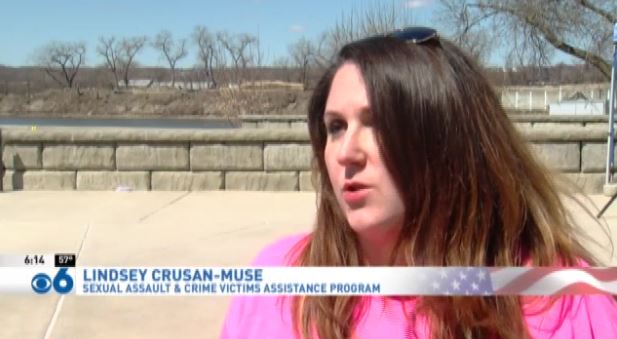
[This piece was written by Ryan Melone from the Sexual Assault and Crime Victims Assistance Program with St. Peter’s Health Partners.]
Historically, the conversation about rape and sexual assault has focused primarily on the assault itself. What people don’t always realize is the aftermath of sexual violence can also be extremely difficult for survivors. For many who experience it, sexual assault is traumatic and can have harmful mental and emotional outcomes, potentially long after the assault takes place.
The Sidran Institute states that trauma occurs when an extremely dangerous or harmful situation overwhelms a person’s ability to cope, leaving the person in fear for their safety. Experts from Psychology Today note that, during traumatic events such as rape and sexual assault, the brain enters survival mode, activating an automatic “fight, flight, or freeze” response.
At the same time, the part of the brain responsible for processing information goes inactive. This shift in brain activity can make it difficult to remember the sequence of events and can leave the person unable to process the emotional experience, resulting in negative short-term and long-term mental health outcomes.
A survivor may experience a wide range of emotions following an assault. The Joyful Heart Foundation lists numerous possible responses, including but not limited to:
- Numbness/ shock
- Extreme anger
- Intense fear
- Feeling vulnerable
- Disorientation
- Loss of control
- Shame and guilt/self-blame for “allowing” the assault to happen
- Feelings of weakness
Some survivors may also experience longer-term mental health consequences. Mental Health America and the Rape, Abuse, and Incest National Network (RAINN) report that sexual assault survivors may experience:
- Post-Traumatic Stress Disorder (PTSD): Being constantly on-guard or alert, actively trying to avoid reminders of the assault, and/or nightmares or flashbacks (vivid, unwanted memories of the assault).
- Depression: Long periods of sadness, hopelessness, or emptiness; loss of interest in hobbies; and/or fatigue/loss of energy.
- Anxiety: Persistent fear or worry; intrusive thoughts; fatigue; and/or muscle tension. Some with anxiety may experience panic attacks.
- Eating disorders such as anorexia or bulimia.
- Struggles with using alcohol or other substances.
All of the above are things survivors may experience, but it’s important to remember that no two survivors are alike. A survivor may experience all of these outcomes, or they may experience none of them. Regardless of their mental and emotional responses, all survivors deserve to be heard, believed, and supported.
Fortunately, recovering from the effects of sexual violence is possible. The Sexual Assault and Crime Victims Assistance Program (SACVAP) at St. Peter’s Health Partners offers short-term counseling, trauma therapy, and support groups to help survivors of crime cope with and recover from the experience. SACVAP also offers advocacy services during medical and legal appointments. All services are free and confidential.
For more information about SACVAP services, please call 518-271-3410 or visit our website at www.sphp.com/sexual-assault. If you or someone you know has been the victim of a crime and needs to speak with someone outside of business hours, you can contact our 24-hour hotline at 518-271-3257.





